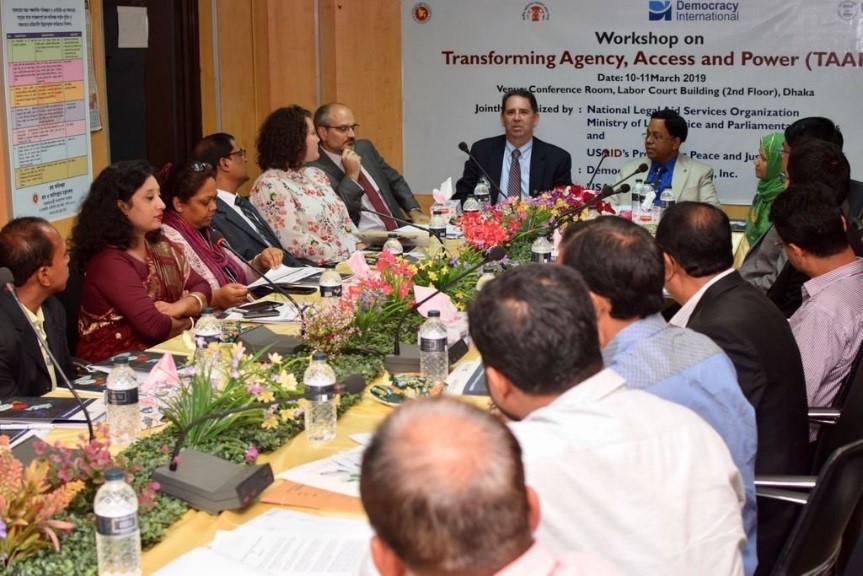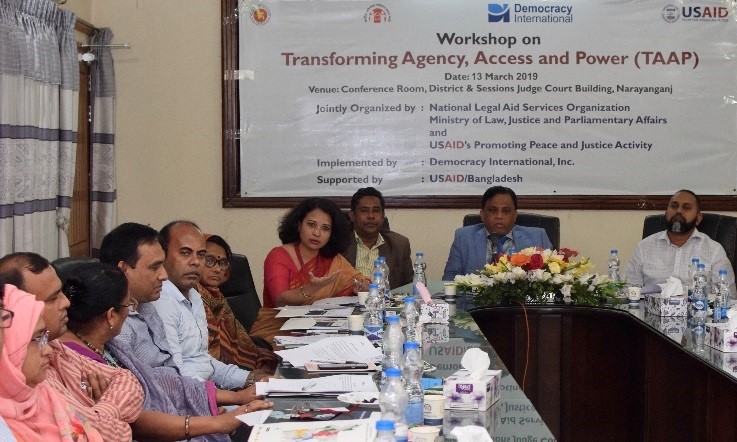
Supporting Inclusive Justice in Bangladesh
By Democracy International | May 8, 2019

photos by Democracy International
For a justice system to work effectively, it must serve all of its citizens, including by providing marginalized communities a place where they can seek and receive justice. To make this ideal a lived reality, judicial systems must have not only the capacity but also the commitment to ensure access for everyone. The courts, in particular, play an outsized role in establishing and sustaining legitimate governance.
Thus, in Bangladesh, in partnership with the country’s National Legal Aid Services Organization, Democracy International (DI) is using the Transforming Agency, Access, and Power (TAAP) “Toolkit and Guide for Inclusive Development” to encourage justice sector actors to develop a shared understanding of the importance of inclusion within the courts. DI is advising court staff members, including labor court personnel, and legal aid committees on how to apply inclusion principles in their daily work. This is part of DI’s Promoting Peace and Justice program in Bangladesh, a multi-year effort working with legal aid delivery organizations, judges and judicial staff, and vulnerable groups to improve access to justice and delivery of legal services. Understanding that “governments that fail to treat women equally do not allow their societies to reach their potential,” as the U.S. Government’s National Security Strategy puts it, DI is working with justice sector leaders in Bangladesh to sensitize court personnel and legal aid providers to the barriers faced by vulnerable groups seeking access to courts and legal aid services.

photos by Democracy International
DI’s programmatic focus on inclusion in the justice system in Bangladesh is showing promise. As one participant from a District Legal Aid Committee stated after participating in the TAAP training session, the workshop “has helped me to recognize that judiciary has a duty” to engage on issues faced by marginalized communities within the legal system. By facilitating discussion on inclusion using methodologies such as TAAP, DI is committed to working with key stakeholders within the judiciary and the broader justice system to develop their own approaches to ensuring that women, minority groups, and other marginalized communities are able to access justice.
In their willingness to address obstacles to inclusion, justice sector actors in Bangladesh have demonstrated leadership that provides a model for other countries. “We are proud to have helped move forward the conversation about inclusion in the Bangladeshi legal system,” said DI President Eric Bjornlund, “and we look forward to continuing to partner with the U.S. Government in its efforts to promote the participation of women and marginalized communities in all aspects of democratic development programming.”